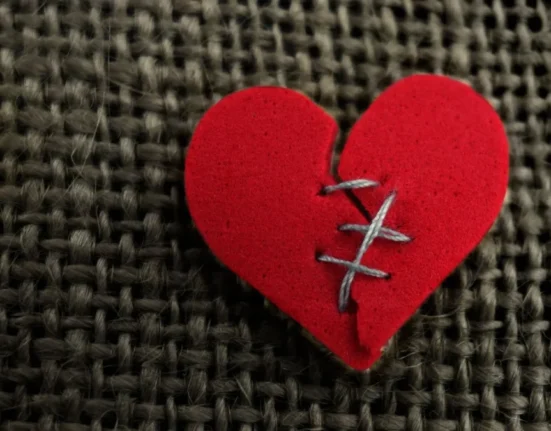Last Updated on June 10, 2025 by Rachel Hall
- Experiencing Relationship Burnout? How to Restore Intimacy and Reconnect for Good
- What Is Relationship Burnout?
- 10 Warning Signs of Relationship Burnout
- 5 Root Causes of Relationship Burnout
- How Burnout Affects Intimacy and Emotional Safety
- 11 Expert-Backed Ways to Overcome Relationship Burnout
- When to Consider Seeking Professional Help
- Final Thoughts: Burnout Doesn’t Mean It’s Over
Experiencing Relationship Burnout? How to Restore Intimacy and Reconnect for Good
If you’ve found yourself wondering why your once-loving romantic relationship feels strained, distant, or emotionally taxing, you may be experiencing relationship burnout. You’re not alone. Many couples silently suffer through the state of emotional exhaustion that follows months—or years—of tension, unmet expectations, and disconnection.
The good news? You can overcome relationship burnout. This guide will show you how to recognise the signs, understand the causes of relationship burnout, and implement actionable strategies to reignite the connection you once cherished.
What Is Relationship Burnout?
Relationship burnout refers to a prolonged state of burnout in a partnership caused by ongoing stressors and frustrations, emotional fatigue, and unresolved conflicts. When the emotional labour required to maintain the relationship becomes overwhelming, one or both partners may begin to withdraw—consciously or unconsciously.
According to licensed marriage and family therapist Rachel Needle, relationship burnout develops gradually and often mirrors professional burnout. It is marked by chronic stressors, ongoing disconnection, and emotional numbness.
This emotional disengagement can affect couples across all life stages, whether they’ve just moved in together or been married for decades.
10 Warning Signs of Relationship Burnout
Recognising the early indicators is vital. Here are the most common signs of relationship burnout:
- You regularly walk around resenting your partner.
- Conversations lack emotional depth; heart-to-heart discussions are rare.
- Date night is either absent or feels obligatory.
- There’s a noticeable decline in intimacy, including decreased libido.
- You or your partner feels overwhelmed by small relational issues.
- You no longer feel excited about spending time together.
- You crave alone time, even during shared experiences.
- You feel emotionally safer at work than at home.
- The relationship feels like work, not comfort.
- You’re questioning if the relationship is perfect for you.
These signs of burnout don’t necessarily mean the relationship is doomed, but they are a signal that it’s time to act.
5 Root Causes of Relationship Burnout
Understanding the causes of relationship burnout can help you address the problem at its core:
- Unequal effort – When one partner does most of the emotional heavy lifting, resentment grows.
- External stressors – Financial strain, family stressors, or job demands can seep into your relationship.
- Unmet needs – When you’re not emotionally, physically, or spiritually fulfilled, exhaustion sets in.
- Unresolved conflicts – Letting issues fester only intensifies emotional fatigue.
- Lack of growth – A static relationship can breed boredom and lead to burnout.
These issues accumulate over time and create an emotionally unsafe space, making it difficult to maintain a healthy connection.
How Burnout Affects Intimacy and Emotional Safety
As burnout worsens, intimacy often becomes one of the first casualties. This includes physical touch, emotional vulnerability, and shared joy.
A burnt-out partner may avoid cuddles, ignore sex opportunities, or even shy away from simple gestures like a six-second kiss or an extended embrace. Emotional distancing results in a breakdown of safety and trust, leaving both partners feeling alone, even when together.
When affection feels forced or absent, couples may retreat into routines, distractions, or even emotional detachment.
11 Expert-Backed Ways to Overcome Relationship Burnout
1. Recognise and Validate the Burnout
Recognising the signs of burnout is the first step. Accept that things aren’t ideal, but avoid blame. Use reflective language: “I’ve been feeling distant,” instead of “You never try.” Naming the issue together reduces defensiveness and opens a space for empathy.
(H3) 2. Reconnect Through Intentional Time Together
Quality time is not about proximity—it’s about presence. Whether it’s a walk outdoors, an at-home spa evening, or simply preparing dinner together, carve out time intentionally. Even trying to play a game or do something silly together can bring back joy.
3. Prioritise Communication Without Defensiveness
Avoid surface talk. Schedule regular, honest dialogues. Make space for each other’s truth, without rushing to fix or argue. Creating this space will allow both of you to work toward healing.
4. Share the Load
When partners feel burned by disproportionate responsibilities, the emotional divide grows. Sit down and fairly divide demands at home, childcare, and emotional labour. The goal isn’t perfection—it’s mutual support.
5. Schedule Alone Time and Self-Reflection
A strong couple is made of strong individuals. Don’t feel guilty for taking alone time to recharge. Prioritise self-reflection, journaling, and personal space. It can significantly rejuvenate your emotional reserves.
6. Start a Workout Routine or Mindfulness Practice
Physical movement helps regulate emotions. Consider a shared workout routine or introduce a personal mindfulness ritual. These habits lower stress and deepen emotional connection.
7. Rediscover Novelty and Shared Joy
Routine is comforting—but it can also breed boredom. Try a new hobby, dance class, or visit a new place together. Novelty activates dopamine and can help reignite passion.
8. Let Go of the Need for Your Partner to Change First
With relationship burnout, it’s tempting to think, “If only my partner would change.” But progress starts from within. Change your energy, your perspective, and your approach. Your shift may inspire theirs.
9. Address Unmet Needs Transparently
Use “I feel” statements to communicate unmet needs. For example: “I feel disconnected when we don’t check in emotionally.” Expressing needs openly, without accusation, invites collaboration.
10. Speak to a Professional Therapist
Sometimes, healing needs support. A couple’s therapist or licensed marriage and family therapist can offer a safe space for honest conversation. If your partner resists, go without your partner—your clarity matters too.
11. Create a Burnout Recovery Plan Together
Finally, make a joint plan. Block time weekly to reflect, connect, and check in. Focus on small, attainable goals like:
- Weekly date night
- Daily moments of affection (e.g., a six-second kiss)
- Regular self-care efforts, such as rest, meditation, or journaling
- Intentional conversations every Sunday
When to Consider Seeking Professional Help
If you’ve tried everything and still feel stuck, it’s time to seek professional help. Whether through an in-person therapist or an online platform, support from a neutral third party can make all the difference.
Remember: You don’t have to go it alone. Getting support is a sign of strength, not failure.
Final Thoughts: Burnout Doesn’t Mean It’s Over
Burnout doesn’t mean your relationship is over—it means it’s time to listen, to act, and to grow. With the right tools, emotional maturity, and effort, you can recover from burnout and build an even more fulfilling relationship than before.
Whether you’re at the edge or just starting to feel the weight, know this: change is possible. And it begins with choice—the choice to care, to communicate, and to reconnect.

Rachel Hall, M.A., completed her education in English at the University of Pennsylvania and received her master’s degree in family therapy from Northern Washington University. She has been actively involved in the treatment of anxiety disorders, depression, OCD, and coping with life changes and traumatic events for both families and individual clients for over a decade. Her areas of expertise include narrative therapy, cognitive behavioral therapy, and therapy for traumatic cases. In addition, Rachel conducts workshops focusing on the psychology of positive thinking and coping skills for both parents and teens. She has also authored numerous articles on the topics of mental health, stress, family dynamics and parenting.








Leave feedback about this